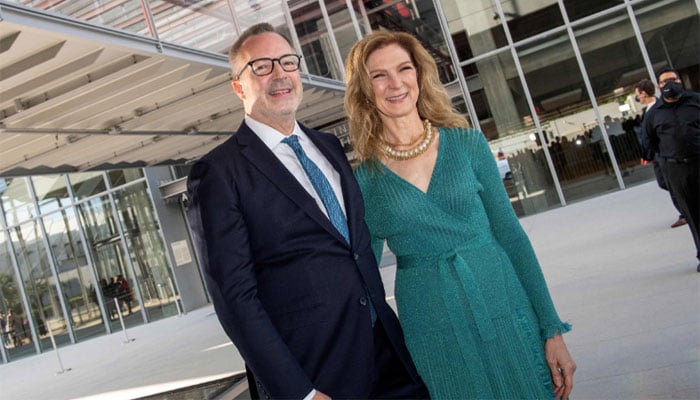named its new CEO on Tuesday, ending a turbulent 11 years under Don Hudson that included the #OscarsSoWhite controversy, a major expansion of the group's membership — and the infamous slap of Will Smith.
Hudson first announced plans to step down last October, shortly after the successful opening of the Academy's flagship new film museum in Los Angeles. He will be replaced by Bill Kramer, who oversaw the launch of that museum.
Academy President David Rubin said in a statement, Kramer "is the ideal choice to lead at this critical moment for the organization."
As the group of Hollywood's most elite filmmakers, which also oversee the Oscars, the Academy has had to navigate a number of controversies in recent years, including allegations of a lack of racial diversity.
Most notably, the group was criticized for its lack of black Oscar nominees during the #OscarsSoWhite movement, which emerged in 2015.
Hudson observed and fulfilled a pledge to double the number of women and minority members by 2020, increasing the overall membership from about 6,000 to nearly 10,000 in the process.
"She launched unprecedented efforts to create more room for diverse voices, both within membership and our industry," Rubin said.
Hudson and senior leadership faced criticism for a perceived lack of response after Smith hit comedian Chris Rock on stage during this year's Oscars ceremony.
The Academy has said that Smith was asked to leave the Hollywood Ballroom shortly after the attack – but that claim was disputed, including by representatives for Smith.
Smith – who won the Academy Award for Best Actor soon after the controversy – was subsequently banned from attending the Oscars for the next decade.
Kramer, who will begin as CEO next month, oversaw nearly $400 million of fundraising for the Academy Museum, which was decades in the planning, and has become a top priority for the organization's future.
The Academy said the museum — home to Tinseltown memorabilia ranging from Judy Garland's "Wizard of Oz" ruby ??slippers to Dracula's cape — has sold more than 550,000 tickets in nine months.

